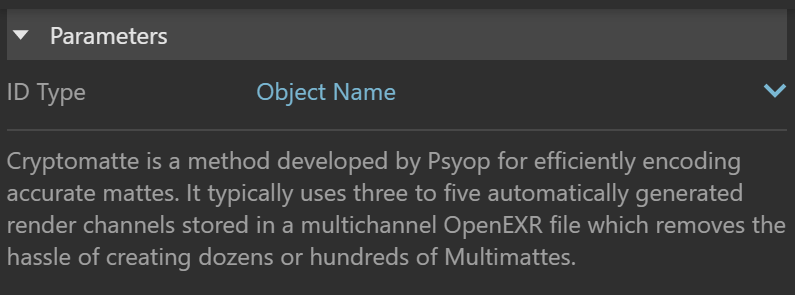This page provides information about the Cryptomatte render element in V-Ray for Rhino.
Overview
Cryptomatte is a method developed by Psyop for efficiently encoding accurate mattes. It typically uses three to five automatically generated render channels stored in a multichannel OpenEXR file which removes the hassle of creating dozens or hundreds of Multimattes.
Compared to the Multimatte Render Elements, Cryptomatte offers the following:
- Does not require a setup with object IDs, etc.
- Only requires a fixed number of additional render elements, typically four.
The Cryptomatte render element can be used for post-production using 3rd-party software plugins, such as the Cryptomatte plugin for Nuke or Fusion and Exr-IO for Adobe Photoshop.
With V-ray 5.10.02, the Cryptomatte Render Element works with the Progressive Image Sampler type as well.
UI Paths
||V-Ray Asset Editor|| > Render Elements (right-click) > Cryptomatte
||V-Ray Asset Editor|| > Create Asset (left-click) > Render Elements > Cryptomatte
Parameters
ID Type – Specifies how the ID mattes are created.
Object Name – Creates mattes based on object names. Note that object IDs are used in case no scene name is specified.
Material Name – Creates mattes based on the materials in the scene.
Object Name with Hierarchy – Creates mattes by object names with full scene hierarchy path.
Layer Names – Creates mattes based on the layer names the object belongs to.
Common Use
After producing a multichannel exr image with the Cryptomatte layer, we can use it in a compositing application, such as Nuke, to color correct the image. This example shows the before and after color correcting.




